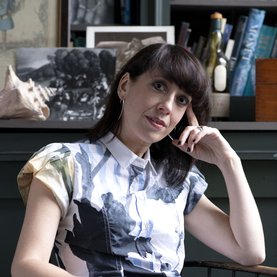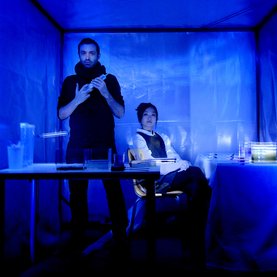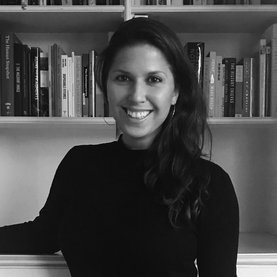
Key details
Time
- 9am – 6pm
Location
- Online
Price
- Free
Who can attend
- Everyone
Type
- Webinar
You're invited to join our free online portfolio session on Creative Research Methods in Art & Design Practice with MRes RCA faculty!
About this event
Join Prof Gemma Blackshaw, Burton Nitta and Esther Teichmann to learn more about Master of Research at the RCA and more.
Attending this event will gain a deeper understanding of what is a Master of Research, what is a research method, and other interesting topics. There will be talks on these subject and more, as well ad the opportunity to discuss and ask questions with our faculty.
Who is this event for
- Those interested in postgraduate study at the Royal College of Art
- Current RCA applicants and offer holders
- Friends and family are also welcome to join, though please ensure they have a ticket
How to join
This event will take place virtually on Zoom. The event is free to attend, but you will need to register through Eventbrite to guarantee your spot and receive the Zoom link.
To avoid any technical issues on the day, we recommend you download the latest version of Zoom in advance.
When it’s time, come back to this Eventbrite page to join the event - you’ll get an email reminder on the day too.
Joining from a country where Zoom doesn't work?
Cuba, Iran, North Korea, Syria and Ukraine (Crimea, Luhansk, Donetsk regions) have restricted Zoom for regulatory reasons. Please reach out to recruitment@rca.ac.uk if this affects you.
What to expect
Thursday 13 February 2025, 9-10am and 5-6pm
Intro: What is a Master of Research and What is a Research Method? with Dr Esther Teichmann, MRes Head of Programme (10 minutes)
Talk: Archival Workings - creative working in and with archives with Prof Gemma Blackshaw, MRes Senior Tutor (15 minutes)
Talk: Prototyping and Protoplay as Method with Burton Nitta, MRes collaborative duo Tutors (20 minutes)
Q+A discussion (20 minutes)
More information on the talks
Archival Workings and Working in Archives with Prof Gemma Blackshaw
To archive is to collect, to store, and to retrieve. This short presentation focuses on creative working in archives, and on the archive’s own workings, gathering responses by a selection of contemporary scholars, writers and artists to the questions of what is collected, where it is stored, and how it is retrieved. To retrieve is to find again, to recover or recuperate; it is an action which is often connected to notions of return—such as to a past-time—and of repair. Focusing on expanded, critical and creative processes of retrieval, the lecture lingers on a question prompted by the quotations included above: namely, how might the archive—a site of reckoning, replete with loss (that prefix again…)— become the place from which one might imagine new practices and new possibilities including, but by no means limited to, fiction itself?
Prototype and Protoplay as Methodwith Burton Nitta
In this session, we will consider prototyping and protoplay as a method of practice-based research and knowledge creation. The lecture will include strategies for prototyping and how the method can be used at various stages of the iterative research journey. We will look at how prototypes can be used in ideation, to work through ideas, and to move from vagueness to clarity and specificity. We will consider differences in prototypes in terms of materiality and process. The session will look specifically at how prototypes can be used as tools for research development and how this relates to the contextual location of prototypes as cultural probes or for world-building (imagining alternatives), proof of concept models, and for interactions within ecological networks. The session will introduce prototypes as a method to involve embodiment within a reflective research practice. Once the prototype exists, we will introduce a method we call 'protoplay', which explores the prototype within a performative, participative, and playful research activity.



